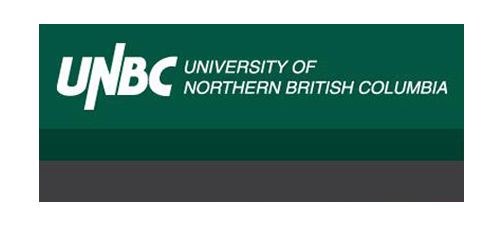UNBC faculty held a rally and information session Wednesday, highlighting bargaining items that have stalled negotiations and answering student questions about the possibility of a strike.
A crowd of around 200 students heard from several faculty who said their pay was far below comparable institutions. Many argued the university could lose its place as a respected academic institution and its ability to attract and retain professors.
Negotiations have been ongoing since April, when the faculty unionized, and despite agreement on 70 per cent of the items, the two sides are still far apart.
"Some of the most substantial articles remain to be settled, including compensation and benefits, program redundancy, which is the process by which a program can be eliminated from UNBC, and tenure and promotion," said Jacqueline Holler, president of the association, which represents 343 full- and part-time members.
There are three days of mediated talks scheduled for this weekend. Although faculty voted 85 per cent in favour of a strike mandate in mid-January, if bargaining fails any action would happen after the Canada Winter Games because the association previously agreed it would not to picket during the event, said Holler.
Wednesday's afternoon crowd was supportive, clapping after each successive professor spoke, with questions that focussed on impact of a strike rather than the faculty's position.
Were faculty close to strike? Could it disrupt graduation for some students or the semester for others? Could the semester be extended? Would students get money back for weeks out of classes?
"A lot of these are really contingent questions because they depend first of all on whether job action happens and how long it goes on," said Holler.
She said there's a case to be made for some monetary kick-back to students because the university would save thousands of dollars a day on instructor salaries, but that decision was up to the university.
Holler suggested students take up their questions with administration, pointing them to Daniel Weeks, UNBC's president or John Young, the acting academic vice-president and provost.
"Your questions, your pressure will have an impact," Holler said.
Second-year student Rebekah Hanson said she planned to take that advice, adding the administration has been largely silent on the issue.
"For me it doesn't seem like the administrative people care."
"What are we supposed to do while they're on strike?" said Hanson, who is taking prerequisites so she can enter the social work program. "It's financial for a lot of students. that's the main issue. A lot of people aren't from town either and not knowing when it's going to happen."
Without those credits, Hanson could be delayed a full year.
Emily Harrison, who works as the university's sustainability manager for the Canada Winter Games, asked several questions of the presenters.
She called for comparative statistics on salaries that also take into account cost of living and brought up UNBC's declining enrollment. Could that be a financial argument against upping professor salaries, or is it a case for investing in professors, with a goal of increasing retention over time?
"For the student it's a 'he said she said,'" said Harrison, noting it's important to ask critical questions of both sides, but that can be a daunting thing for young students facing their professors.
"Those kind of power differentials we can't forget about in this kind of open forum."
One professor said he was shocked by the low morale of staff in July when he returned from a year on research sabbatical.
"The institution seemed to have transformed into a dysfunctional place," said Kevin Hutchings, who has taught English at UNBC for 15 years.
"As a faculty member who loves this institution, I see it was my duty to ensure that UNBC respect sector norms not only in relation to faculty pay and job security but also in terms of the democratic process that should and must inform properly collegial forums of academic governance and oversight."
Holler said the goal is still a negotiated settlement.
"A strike is an enormously disruptive, painful process for everyone and that's precisely why we're trying to avoid it."



